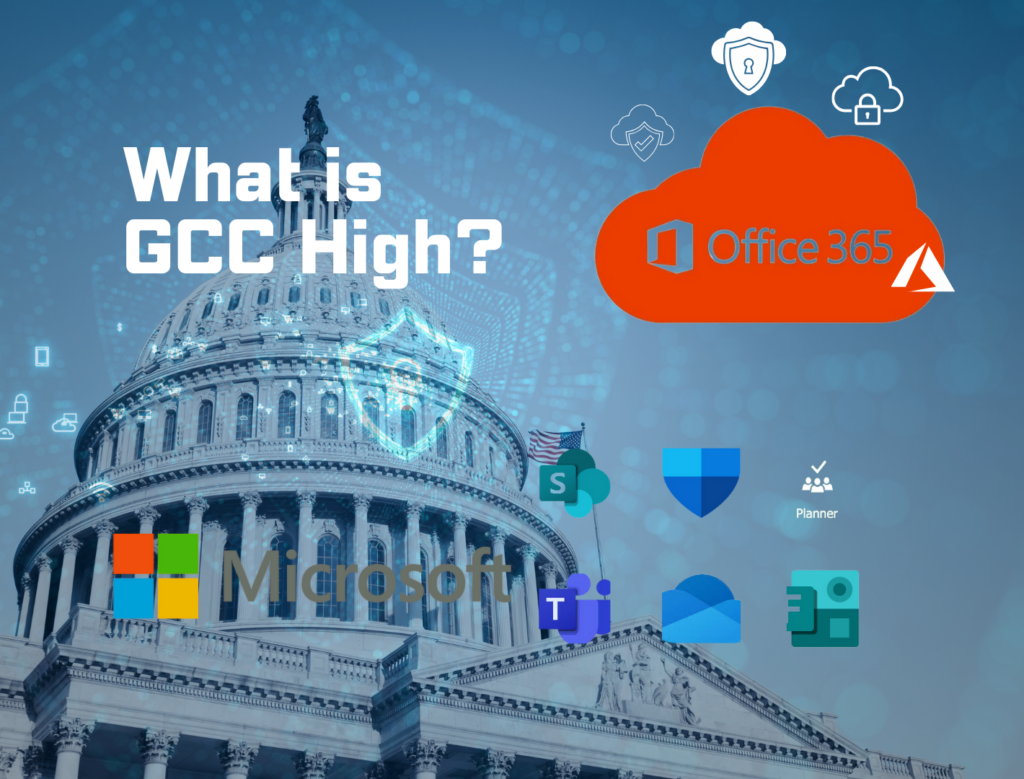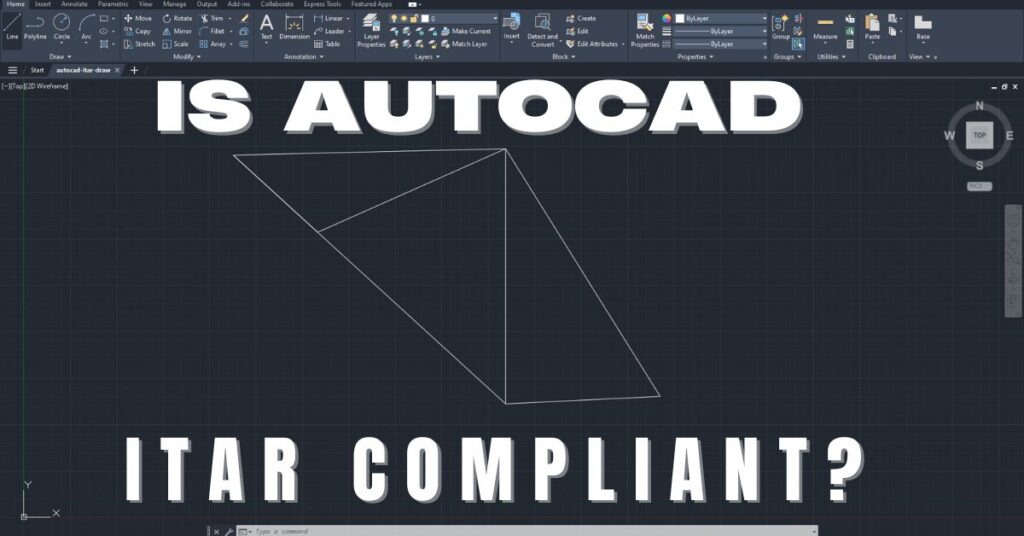Meeting CMMC 2.0 Requirements Using MSSPs and MSPs
CMMC v2.0 was released in November 2021 is an improvement of CMMC meant to simplify and streamline the certification process. It includes levels and the updated procedures and practices. It also establishes a more targeted approach towards safeguarding controlled unclassified information. However, organizations in the Defense Industrial Base are still reviewing the guidelines to understand how they can adjust and remain in line with CMMC 2.0. However, not all contractors have the necessary talent to steer them towards CMMC 2.0 compliance. For example, a DOD official claimed only 1% of the Defense Industrial Base companies had fulfilled the requirements of the 110 NIST controls. CMMC 2.0 has a provision to rectify such situations. It provides various clear-level guidelines and requires the contractors to be assessed by third-party organizations.
Managed Service Providers (MSPs) and Managed Service Security Providers (MSSPs) are examples of third-party companies that help the contractors meet the various requirements to be CMMC 2.0 certified.
How Can MSPs And MSSPs Help You Achieve the CMMC 2.0 Requirements?
1. Managing CMMC 2.0 Requirements
Being CMMC 2.0 certified isn’t just about meeting the CMMC 2.0 requirements. It also includes continually managing them to remain in line with various requirements. Unfortunately, as stated above, some contractors lack the resources to manage the CMMC 2.0 requirements fully. Since managing CMMC requirements is a full-time job, enlisting the help of Managed MSPs and MSSPs can go a long way. These service providers specialize in NIST 800-171 and CMMC 2.0, meaning they are uniquely positioned to help your organization achieve compliance and manage the CMMC 2.0 requirements.
2. Assessing Your Network For Gaps And Vulnerabilities
The first step towards achieving the CMMC 2.0 requirements is determining your current status. This involves conducting a complete evaluation of the existing processes and infrastructure to determine any underlying vulnerabilities or exploitable gaps.
Doing the assessment in-house isn’t enough since there is a high chance of missing something or overlooking an issue that a third party would otherwise not overlook. MSPs and MSSPs play a critical role in this evaluation. They provide a fresh perspective into your process and infrastructure security through running various external vulnerability scans. Some might also go over and beyond by performing network penetration testing.
3. Developing A Tailored Cybersecurity Plan
Corporations differ in size, the CUI they handle, and infrastructural systems in use. The technology architectures also differ significantly between cloud-hosted resources. Additionally, different contractors have varying goals, priorities, and competencies. However, they all need to be CMMC 2.0 certified if they handle CUI, meaning your organization needs a unique approach towards meeting those requirements.
However, this doesn’t mean that you must address everything in-house. For example, things like Migrating to Microsoft GCC high could take you months to finish without guaranteeing that your migrations are secure. Managed Service Providers (MSPs) and Managed Service Security Providers (MSSPs) can help your organization tailor a tamperproof cybersecurity plan through their s experience and strategy. They do all this with a special emphasis on reporting stipulated in DFARS 7012.
4. Implementing the Latest Security Measures
CMMC 2.0 compliance requires implementing the latest security measures and standards, although they are lacking in some organizations. Security shouldn’t be left to chance in this age of constantly changing cyber threats. Outsourcing critical security operations such as intrusion detection and prevention, SIEM (Security Information & Event Management), and many others to MSSPs ensures that your CUI is protected using the latest standards by the cybersecurity-specialized organization.
5. Raising Awareness Through Cybersecurity Consultancy
Although cybersecurity is thought of as a purely technical issue, this might indeed be the most common mistake. Regardless of the contractor’s size, everyone is a potential target of cybercrimes like phishing scams. MSSPs and MSPs don’t just offer technical solutions. They also come up the IT-related compliance demands. Security awareness and training are critical requirements in CMMC 2.0, especially level 1.
The employees can properly report incidences, protect the media, become situationally aware, and ensure system and information integrity through security and awareness training. Coincidentally, cyber incident reporting and safeguarding Covered Defense Information (CDI) are the main components of DFARS 252.204-7012. Hence, through awareness training and cybersecurity consultancy, MSSPs and MSPs help you achieve one of the underlying regulations that CMMC 2.0 supports.
6. Developing Plans of Actions and Milestones
In CMMC 2.0, Plans of Actions and Milestones were introduced. These POA&Ms enable contractors who haven’t met all the cybersecurity requirements during the assessment period to keep working with DoD while implementing their plans to get certified. However, the POA&Ms must meet a specific number of cybersecurity requirements specified by the DOD. Managed Service Providers (MSPs) and Managed Service Security Providers (MSSPs) can help you in developing solid Plans of Actions and Milestones (POA&Ms), meaning that you can continue working with the DoD as you undertake the steps to be CMMC certified.
With the announcement of CMMC 2.0 in November 2021, most companies are still trying to understand the requirement of this new regulation. While some companies can meet the requirements in-house and conduct self-assessments, CMMC 2.0 requires third-party assessments. Are you required to meet CMMC 2.0 requirements? MSSPs and MSPs like Cleared Systems can help you become CMMC 2.0 compliant through various ways, as discussed above. At Cleared systems, we also help contractors in the DIB to prepare for their CMMC 2.0 Assessment. Enlist our team at Cleared Systems to help you meet CMMC 2.0 requirements and management.
Share in Social Media
See More Case Studies

Securing Defense Contracts: A DFARS 252.204-7012 Compliance Case Study
Discover how Cleared Systems helped a Federal Contractor successfully achieve DFARS 252.204-7012 compliance by strengthening its cybersecurity posture, giving it a competitive edge when bidding for DoD Contracts.

What is GCC High? For ITAR & CMMC 2.0
Microsoft 365 Government Community Cloud (GCC) High is a specialized cloud solution tailored for U.S. federal, state, local, tribal, and territorial government organizations, as well as for contractors who hold or process data subject to specific security regulations. In this article, we will explore the features, benefits, and differences between Microsoft 365 GCC High and other Office 365 offerings.

Is AutoCAD ITAR Compliant? A Comprehensive Guide for Defense Manufacturers
Defense contractors and manufacturers working with sensitive military technologies face a critical question when selecting computer-aided design software: Is AutoCAD ITAR compliant? This question becomes

How to Get Help in Windows: Guide to Security and Compliance Support
In today’s digital landscape, ensuring your computer systems are secure and compliant with industry regulations is essential for both businesses and individuals. Windows, as one

Microsoft Copilot for GCC High: Enhancing Security and Compliance
In today’s fast-evolving digital landscape, organizations that handle sensitive data, particularly those in government sectors or defense contractors, face growing pressure to maintain strict security
Partner with Us for Compliance & Protection
We’re happy to answer any questions you may have and help you determine which of our services best fit your needs.
Your benefits:
- Client-oriented
- Security
- Compliance
- Peace of mind
- Efficiency
- Trust
What happens next?
Schedule an initial meeting
Arrange a discovery and assessment call
Tailor a proposal and solution
